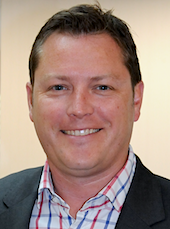Business leaders wanting to take their first tentative steps towards the cloud while retaining a hardware presence on-site are prime targets for resellers of ShoreTel Connect, a new solution launched to the UK market that offers a single platform with three deployment options and a common user interface.
The vendor has mid-market firms in its sights and according to a senior industry analyst the launch enables UK resellers to more easily approach businesses with an all-embracing UC&C solution that allows customers to readily migrate to the cloud in their own time or continue with a CPE-only solution.
In detail, ShoreTel Connect Onsite is an end-to-end UC solution that customers own, maintain and control; ShoreTel Connect Cloud is a fully hosted and managed end-to-end UCaaS solution; while ShoreTel Connect Hybrid enables Onsite customers to have applications delivered via the cloud. Hybrid apps such as ShoreTel Fax and ShoreTel Scribe (voicemail transcription) are also available.
Rich Costello, Senior Research Analyst at IDC, noted: "The new common platform enables ShoreTel to offer customers what they want - a choice of premises, hosted or hybrid solutions with a consistent user experience across a common software stream.
"The common platform also makes UC&C easier for its channel partners to deploy and support as well as for customers to migrate from one model to another as needed. With its fully integrated solution, ShoreTel eliminates the need for customers and partners to piece together complex solutions from multiple parties."
ShoreTel Connect introduces new features such as personalised call handling and call routing for both office and mobile devices; collaboration tools including IM, audio and web conferencing, point-to-point video and desktop sharing; feature integration and collaboration apps for smartphone, tablet and wearable devices; integration with CRM systems; and apps like voicemail to text, emergency notification, integrated call recording and enhanced paging.
ShoreTel's President and CEO Don Joos said: "ShoreTel Connect helps customers determine how and when to move communications to the cloud by offering hybrid options along the way, no matter how many sites or employees.
"Whether customers prefer to subscribe to a managed cloud service, invest in an on-site system or deploy a combination of the two, there is a single UC solution that delivers the same user experience and capabilities to the entire team."
The new ShoreTel Connect client is consistent across the deployment types. With one click, users can escalate a conversation from an IM to a call, to an online meeting, and then to a web desktop share and video.
The browser-based app also facilitates collaboration among internal teams and enables external users to engage and collaborate without the need for plug-ins, multiple application windows, passwords or complex set-up.
As part of the ShoreTel Connect roll-out the vendor also introduced a contact centre solution scalable to 1,000 users for ShoreTel Connect Cloud and ShoreTel Connect Onsite.
ShoreTel Connect Contact Center introduces multiple interaction channels including inbound and outbound voice (with the ability to incorporate campaign dialling and automated call backs from queue), web chat, web call back requests and email routing.
"The new browser-based interface, called ShoreTel Connect Agent Interaction Center, combines easy management of multiple contact channels, deep contextual transaction information, agent and service KPI information, supervisor/agent interactions, web chat, and agent controls within a single pane," said Eugenia Corrales, Senior VP of Product.
The solution provides support for up to 1,000 concurrent agent logins for both cloud and onsite deployments, offers real-time and historical reporting including statistics of call centre activity, detailed agent activity and call-by-call details on outbound calls.
Also on offer are enhanced customer self-service capabilities with customisable interactive voice response (IVR) scripting; as well as deep integrations to workforce optimisation and CRM solutions including support for real-time adherence.
"Our ShoreTel Connect common platform enables the delivery of a feature-rich cloud contact centre solution to meet the needs of today's multi-channel, multi-site organisations," added Corrales.

 Customer contact technology specialist Sabio has appointed Ben Le Feuvre as Head of its Network Services business.
Customer contact technology specialist Sabio has appointed Ben Le Feuvre as Head of its Network Services business. Intercity Technology is celebrating its third decade in business since it was founded by Alan Jackson in Birmingham in 1985.
Intercity Technology is celebrating its third decade in business since it was founded by Alan Jackson in Birmingham in 1985. The important role of marketing in the success of a company's growth strategy has been underlined by the appointment of Rob Townsend by Nimans as Group Chief Marketing Officer with a remit to spearhead all marketing activities.
The important role of marketing in the success of a company's growth strategy has been underlined by the appointment of Rob Townsend by Nimans as Group Chief Marketing Officer with a remit to spearhead all marketing activities.